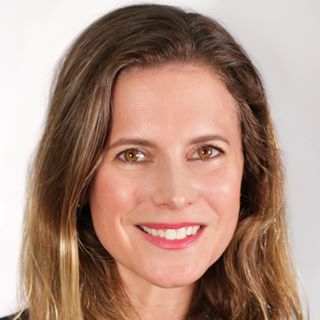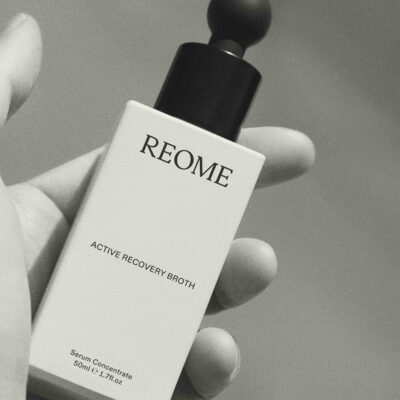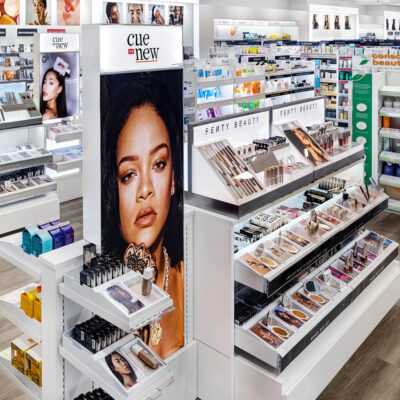
Adios To The Man: Indie Brand Founders On Leaving Full-Time Jobs For Entrepreneurial Ventures
In this edition of Beauty Independent’s ongoing series posing questions to beauty entrepreneurs, we ask 20 founders and executives: When did you quit your full-time job to concentrate on your beauty brand?
- Susanne Norwitz Founder, Maya Chia
I was turning 40, and the mantra kept cycling through my head: If not now, when? I wanted to capitalize on the full base of my strengths and didn’t think my career, as it was, took full advantage of my creativity and vision. It took about three years to summon the courage to make the transition to creating a beauty brand full-time.
For most people who may be a bit risk-adverse, I'd say try to pursue this kind of career change on the side, and don't be lazy. If this is your passion, do what you can to make it happen while you are still earning a paycheck. Work any and all extra jobs, find out what part of the business you love by process of elimination, but work, work, work. The key here is if you love and are passionate about what you do it won't feel like work.
- Mia Fiona Kut Founder, Luna Nectar
I had started Luna Nectar as a side hobby. I had been working full-time in the film industry for about four years and came to the realization that I was yearning for more stimulation and an alternative way to exercise my creativity.
As a relatively new brand, I could see pretty quickly that I needed more time in the day to fulfill demand and to grow the company to its full potential. However, I was very nervous at the thought of quitting the film industry cold turkey and to be giving up stability. I made a lot of excuses not to.
Finally, I wrote out a pros and cons list, consulted business advisors and mentors, and plotted out financial and action plans for myself and the business. Seeing the numbers in black and white and gaining the support of mentors gave me the confidence to dial back the hours I was working in film. In January 2018, I started decreasing my hours and, by April, I was focusing on Luna Nectar full-time.
- Jessica Morelli Founder and CEO, Palermo Body
I quit my full time job in 2014 and took a number of part-time jobs while working on our branding process. I had sold skincare successfully for many years before, so I felt confident enough in my concept and positioning to take the risk.
I launched Palermo Body as it looks today in September of 2015, a little over a year after quitting. I continued working three part-time jobs to support myself in the first year-and-a-half after our launch while spending every other waking moment on Palermo.
By the time I finally decided to leave all my other jobs in February 2017, I had had an employee for over six months. It was more that I knew the business needed me to quit the other jobs at that point rather than actually feeling ready. It’s been over a year since quitting, and I still don't feel ready, but it was the right move, and I'm glad I waited as long as I did.
- Beatrice Feliu Espada CEO and Founder, The Honey Pot Company
I quit my former day job in July 2017. I was working as an area sales manager for Rhythm Superfoods. I committed to working in CPG as that would give me the school of hard knocks education on how to grow my brand. So, I had to get to certain level in my career to do that.
I started as a buyer and merchandiser at Whole Foods Market and left there to be a food broker and, then, went on to work for an actual startup, but the dope thing is that I learned how to sell to a consumer, how to sell to a buyer at the store level and, then, how to sell to a buyer at the corporate level.
I had to stop because Honey Pot had gotten into Target, and we were in a friends and family capital round. I was living a double life. It was the most intense time in my life. I couldn’t be a good founder and live in that type of stressful environment. However, I believe it's necessary to live this way as a founder for as long as possible until the company can support itself as you don't want to bankrupt your company before you get off the ground.
- Lauren Haynes Founder, Wooden Spoon Herbs
I broke my foot! I was waiting tables, hemming and hawing about leaving and focusing on Wooden Spoon full time and, then, I stubbed my toe so hard one day that two toes broke, and I couldn't wait tables. So, I hobbled around all season - it was holiday season - and made more money than I would have at my day job. So, that's when it started to click. With their blessing, I never went back.
- Rachel Vicknair Founder and CEO, Leopara
My former day job was brand educator for a global beauty brand, so I was very front-facing to our retailers, distributors, partners and customers. My former job required my full passion and energy. So, I could not see myself beginning the journey for my own brand while representing someone else’s.
A year after my Leopara light-bulb moment happened, the desire to get started became so consuming that I made the decision to leave my full-time position. I used my savings for initial prototyping, business start-up costs and did freelance work to cover my bills.
The decision of when to make the jump is a very personal one based on many different factors. It can be terrifying, yet exhilarating, and I highly recommend that you have the support of those closest to you, and spend some time listening to your gut and intuition before making the decision. It is a good exercise in finding out just what you’re willing to sacrifice in order to pursue your dream.
- Kimba Williams CEO and Co-Founder, Kushae
While I was working full-time, our R&D was well under way, and we were planning a soft launch for November of 2017. I knew that, after all the excitement of the launch, I would not want to go back. As we made progress with R&D, I looked forward to working on my brand, and became less and less excited about going to work as a pharmaceutical sales rep.
There were days I would drive to a client's office and sit in my car for hours not wanting to get out. My performance started to slip, and I could care less. That's when I knew it was time to go. My exit strategy included saving six months of salary on top of the savings I already had and on, January 1, 2018, I said, "Hello New Year, goodbye job!" Best. Decision. Ever.
- Marie Drago Founder, Gallinée
I quit my job in June 2015 and the brand launched in April 2016. I was working every waking hour outside of my day job and that was no problem, but I needed to present myself as working for my brand, and my previous job was in the same industry, so that was confusing.
- Michelle Ranavat Founder, Ranavat Botanics
I quit two months prior to launch because it was increasingly important for me to spend all of my time and energy refining and perfecting my brand assets and pitch. While it was really hard, I kept my day job as long as possible because the extra funds were critical to growing the business.
- Matthew Schirle CEO and Founder, SkinKick
I never quit my job. I was part of a discrimination lawsuit that ended my career as president inside a multi-national company. After winning, I was not employable as a corporate executive, so I had no choice but to recreate myself. I started SkinKick in February 2016 after a young woman came to me and said I changed her life after evaluating our blemish relief lotion in a focus group. I never looked back.
- Kristin Voss Owner and Creator, KVossNYC
A year-and-a-half ago, I quit my day job to focus solely on my business. I had stayed as long as I could because I needed the weekly paycheck to support my dream. But my soul was dying going into work every day and not being able to live my truth. I’m a natural giver, and I was surrounded by people that were more than happy to be takers. It was suffocating me in every way.
I tried to split my time. I was getting up at 4 a.m. and working on my business for four hours before going into work and, then, coming home and working for four more at the end of the day. You can only sustain that for so long.
My passion and desire to grow my business continued to push me further, and I found myself finally starting to make some amazing inroads. My goal was to build a life where I could create more, learn more, and have greater ownership over my time.
I had no money set aside. I had no idea if I would be able to pay my rent or my bills. But I believed so deeply that this was what I had to do. So, I left. And I’ve never looked back.
- Francelle Daly Founder and CEO, Lovecraft Beauty
I still have my day job. I am a New York-based makeup artist in fashion and celebrity and one definitely feeds the other. It’s important to have a footprint not only in your trade, but also in your brand. I also use and talk about my products with clients and magazines. Ask me this question next year and things might be very different.
- Crystal Williams Founder, The Balm Shop & Co.
My transition from corporate life to beauty brand has been an amazing journey, mostly because it did not happen at all according to plan. My plan was to slowly build the business and brand over time, make everything perfect and, then, retire from corporate life.
Instead, after working for nearly 15 years as a PR generalist in the healthcare industry, I was thrust into my beauty biz full-time due to a corporate re-org. I did not feel ready, but I had to be ready. I had one product that sold and a dream.
Now, nearly two-and-a-half years later, I have a beauty line and retail partners. I wake up every day feeling blessed because I get to do what I love. I have learned that it is life’s unexpected twists that create an incredible recipe for greatness. If you are thinking about starting something new, be willing to embrace the uncertainty of the journey and enjoy the ride.
- Sébastien Tardif CEO and Co-Founder, Veil Cosmetics
I left my corporate job in 2011 to pursue my dream and finally launch Veil Cosmetics a year-and-a-half later. The unfortunate reality of the corporate world is that a lot of people care more about their title and climbing the ladder as opposed to letting their work ethics and work contribution speak for themselves. That was motivation enough to move on and prove to myself that I had what it takes to succeed on my own.
- James H. La Founder, NIUCOCO
The day I started our company, I was fully committed and invested 150% of my time. Our goal was simple: Get to the three-year mark. I never wanted my company to not succeed because of half-measured efforts. Statistics show that over 80% of companies don’t make the three-year mark from the date of inception. Is it a lack of patience, lack of funds, lack of dedication? Maybe one, maybe all. But, until you’ve given it everything you’ve got and then some, you’re gambling not only your money, but your most valued currency: time.
- Yoel Vaisberg Founder and CEO, Haielle
My case is very unique since Haielle is backed by the same family-owned manufacturers of salon products in Venezuela where I was a full-time COO. For the last three years, I have been traveling back and forth to ensure oversight of the team managing everyday operations at the plant. This time sharing was possible during the initial development stages of the new project, but progressively my attention had to be focused solely on Haielle. Launching a new brand requires full attention and extra effort from the founder and core team.
Despite the serious crisis in Venezuela, we are making every effort to maintain the company. In our case, the crisis in our home country has led us to learn and expand our horizons in the industry. We are firm believers that challenges in life should be embraced as they are opportunities for growth and development.
- Andrei Rebrov CTO and Co-Founder of Scentbird and Deck of Scarlet
I was working as an agile engineering coach teaching companies how to do the right thing right. When you do that, people ask you, “Why don’t you quit and build your own right thing right?” I started to think about it and waited for the right moment. So, when I got an invitation to join a startup I said, "Yes." I used to do both for a while, but you have to dedicate your whole time to your startup if you want it to succeed. So, in six months, I quit my old job and started a new adventure.
- Zane Piese Founder, Atlantis Skincare
As soon as I qualified as a natural cosmetician, I quit my previous roles and threw myself in Atlantis Skincare. I have always wanted my own skincare range, and I just couldn’t bring the same level of passion or enthusiasm to another role, so this was the only way for me.
- David Simnick CEO and Co-Founder, Soapbox
I was in grad school and realized the potential not only for our brand and consumers, but also for those in need. And, to truly put in the work to make this brand the best it can be and reach those in need, I knew I had to devote my full-time attention to it. I was inspired while working on a contract with the USAID and saw the gap between pairing clean water with proper hygiene products and education, and knew I had an answer for that gap.
- Annie Tevelin Founder, SkinOwl
I started SkinOwl in 2013 and was working solely on it at the start of 2015. For the first two years, I was supplementing SkinOwl by dog walking and helping other green beauty brands with their social media presence. Due to our success launching the SkinOwl group on Facebook, I was able to help other small businesses grow online quickly as well.
Over time, I found the time I was spending walking dogs and helping other people on their social media was taking away from the time I needed to grow my brand. I can't say the transition was entirely smooth, but, after a few months, the time I put into SkinOwl turned everything up a notch: sales, outreach, customer service and innovation. Every business will know the right time to jump. If there's a bit of risk when you do, know that this will serve as the great motivator and x-factor to succeed.
If you have a question you’d like Beauty Independent to ask beauty entrepreneurs, please send it to editor@beautyindependent.com.






Leave a Reply
You must be logged in to post a comment.